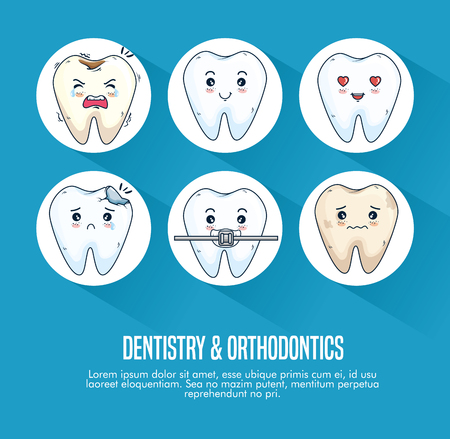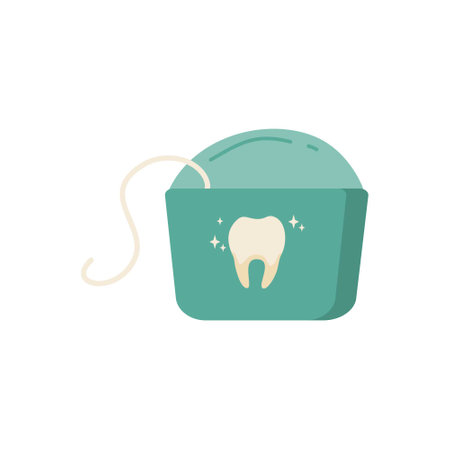1. Introduction to Dental Health in Exotic Pets
Dental health is a crucial aspect of overall well-being for exotic pets, yet it is often overlooked. Many exotic animals, such as rabbits, guinea pigs, reptiles, and birds, have unique dental structures that require specific care. Ignoring their dental health can lead to severe complications, including pain, infections, and difficulty eating.
Why Dental Health Matters
Unlike dogs and cats, many exotic pets have continuously growing teeth or specialized beaks that need regular maintenance. If their teeth or beaks become overgrown or misaligned, it can result in serious health issues. Poor dental health can impact their ability to eat properly, leading to malnutrition and other secondary conditions.
Common Exotic Pets with Dental Concerns
| Species | Common Dental Issues |
|---|---|
| Rabbits | Overgrown teeth, malocclusion, abscesses |
| Guinea Pigs | Molar overgrowth, sharp spurs causing mouth ulcers |
| Reptiles (e.g., Tortoises) | Beak overgrowth, stomatitis (mouth rot) |
| Birds (e.g., Parrots) | Beak misalignment, excessive growth |
How Dental Problems Affect Overall Health
When an exotic pet suffers from dental issues, it can experience weight loss, behavioral changes, and even systemic infections if left untreated. Pain from dental problems may cause them to stop eating altogether, which can be life-threatening for species with high metabolic rates.
Signs of Dental Issues in Exotic Pets
- Drooling or excessive salivation
- Loss of appetite or difficulty chewing
- Weight loss and lethargy
- Swelling around the mouth or face
- Poor grooming habits or decreased activity
The Importance of Regular Check-Ups
Routine veterinary check-ups are essential for catching dental issues early. Exotic pet owners should also provide proper diets and enrichment activities to help maintain healthy teeth and beaks naturally.
Understanding the significance of dental health in exotic pets ensures they live long, healthy lives without unnecessary pain or complications. By recognizing early signs of problems and taking preventive measures, owners can greatly improve their pet’s quality of life.
2. Common Dental Problems in Exotic Pets
Exotic pets, just like traditional pets, can suffer from a variety of dental health issues. Many small mammals, reptiles, and even birds are prone to dental problems that can lead to discomfort, difficulty eating, and serious health complications. Below are some of the most common dental issues seen in exotic pets.
Overgrown Teeth
Many exotic pets, including rabbits, guinea pigs, and chinchillas, have teeth that continuously grow throughout their lives. If these teeth do not wear down properly through chewing on fibrous foods or appropriate chew toys, they can become overgrown. Overgrown teeth can cause pain, difficulty eating, and even injuries inside the mouth.
Infections
Bacterial infections in the mouth can develop due to untreated dental issues such as broken teeth or abscesses. These infections may lead to swelling, pus formation, and severe discomfort for the pet. In some cases, the infection can spread to other parts of the body if left untreated.
Gum Disease
Gum disease (gingivitis and periodontitis) is another concern for exotic pets. Poor dental hygiene or an improper diet can cause plaque buildup along the gumline, leading to inflammation and infection. This condition can result in tooth loss and chronic pain.
Malocclusion
Malocclusion occurs when an animal’s teeth do not align properly, preventing normal chewing and wearing down of the teeth. This issue is particularly common in rodents and lagomorphs (rabbits). Severe malocclusion may require regular trimming by a veterinarian or corrective procedures.
Common Dental Issues by Pet Type
| Pet Type | Common Dental Problems |
|---|---|
| Rabbits | Overgrown teeth, malocclusion |
| Guinea Pigs | Overgrown teeth, infections |
| Chinchillas | Malocclusion, overgrown teeth |
| Reptiles | Mouth rot (infectious stomatitis), broken teeth |
| Birds | Beak overgrowth, infections |
Recognizing these common dental problems early on can help prevent more serious complications. Regular check-ups with a veterinarian experienced in exotic pet care are crucial for maintaining good dental health.

3. Causes of Dental Health Issues
Dental problems in exotic pets can arise from various factors. Understanding these causes can help pet owners prevent issues before they become severe. Below are the primary reasons why exotic pets may suffer from dental health problems.
Poor Diet
A major contributor to dental issues in exotic pets is an improper diet. Many exotic species require specific nutrients and food textures to maintain healthy teeth. A diet lacking in fiber or containing excessive soft foods can lead to overgrown teeth, decay, and gum disease.
| Diet Issue | Effect on Dental Health |
|---|---|
| Lack of fiber | Overgrown teeth, difficulty chewing |
| Too many soft foods | Plaque buildup, tooth decay |
| Nutrient deficiencies | Weak enamel, increased risk of infections |
Lack of Proper Chewing Materials
Certain exotic pets, such as rabbits, guinea pigs, and chinchillas, need to chew regularly to keep their teeth at a healthy length. Without access to appropriate chewing materials like hay, wooden chew toys, or mineral blocks, their teeth can grow too long, leading to pain and difficulty eating.
Recommended Chewing Materials:
- Hay: Provides natural wear for continuously growing teeth.
- Wooden chew toys: Helps grind down sharp edges and prevent overgrowth.
- Mineral blocks: Supports overall dental health by encouraging chewing.
Genetics
Some exotic pets are genetically predisposed to dental issues. Certain breeds may have misaligned jaws or weaker enamel that makes them more vulnerable to dental diseases. While genetics cannot be changed, regular veterinary check-ups can help manage potential problems early.
Neglect and Poor Oral Hygiene
Lack of routine dental care can lead to serious health complications. Pet owners should regularly inspect their pet’s mouth for signs of trouble such as bad breath, excessive drooling, or difficulty eating. Additionally, some species benefit from brushing or specialized dental treatments provided by veterinarians.
Signs of Neglect-Related Dental Problems:
- Persistent bad breath
- Drooling or wet fur around the mouth
- Lack of appetite or weight loss
- Pain when eating or handling
A combination of proper diet, access to chewing materials, awareness of genetic risks, and consistent oral care can go a long way in preventing dental health issues in exotic pets.
4. Signs and Symptoms of Dental Disease
Exotic pets often hide their pain, making it challenging to detect dental issues early. However, certain signs can indicate a potential problem with your pet’s oral health. If you notice any of the following symptoms, it may be time to consult a veterinarian.
Key Indicators of Dental Problems
Being aware of the signs of dental disease in exotic pets can help ensure they receive timely care. Below are some common symptoms that may indicate an issue:
| Symptom | Description |
|---|---|
| Difficulty Eating | Your pet may struggle to chew food, drop food from its mouth, or show a lack of interest in eating. |
| Drooling | Excessive salivation or wet fur around the mouth can signal dental discomfort or infection. |
| Weight Loss | If your pet is eating less due to pain, you may notice gradual weight loss over time. |
| Bad Breath | A foul odor coming from your pet’s mouth could indicate bacterial growth, decay, or infection. |
| Behavioral Changes | Your pet may become more irritable, avoid being touched near the mouth, or exhibit reduced activity levels. |
The Importance of Early Detection
Catching dental problems early can prevent more serious health complications. Regularly monitoring your pet’s eating habits and overall behavior can help identify issues before they worsen. If you observe any of these symptoms, seeking veterinary care as soon as possible is crucial for maintaining your pets well-being.
5. Treatment and Prevention Strategies
Maintaining good dental health in exotic pets requires a combination of professional veterinary care, at-home dental hygiene, proper nutrition, and preventive measures. Below, we’ll explore the best strategies to keep your pet’s teeth and gums healthy.
Professional Veterinary Treatments
Regular veterinary checkups are essential for identifying and addressing dental issues early. Exotic pets often require specialized care, so finding a vet experienced with your pet’s species is important.
Common Veterinary Dental Treatments
| Treatment | Description |
|---|---|
| Dental Cleaning | Professional removal of plaque and tartar buildup to prevent gum disease. |
| Tooth Trimming | For species with continuously growing teeth, trimming prevents overgrowth issues. |
| Extractions | Severely damaged or infected teeth may need to be removed. |
| Antibiotic Therapy | Used to treat infections resulting from severe dental disease. |
At-Home Dental Care
Caring for your exotic pet’s teeth at home is crucial in preventing dental diseases. Depending on the species, different methods may be required:
- Brushing: Some pets, such as ferrets, can benefit from brushing with pet-safe toothpaste.
- Chewing Items: Providing appropriate chew toys or materials helps prevent overgrown teeth in rodents and rabbits.
- Mouth Inspections: Regularly checking for signs of swelling, bad breath, or difficulty eating can help catch problems early.
- Water Additives: Some vets recommend water additives that help reduce plaque buildup.
Proper Nutrition for Dental Health
A well-balanced diet plays a significant role in maintaining healthy teeth and gums. Feeding an appropriate diet based on the pet’s natural eating habits can prevent many dental issues.
Recommended Diets for Common Exotic Pets
| Pet Type | Recommended Diet for Dental Health |
|---|---|
| Rabbits & Guinea Pigs | A high-fiber diet with plenty of hay to naturally wear down teeth. |
| Ferrets | A raw meat-based or high-protein diet to prevent tartar buildup. |
| Turtles & Tortoises | A mix of leafy greens, vegetables, and calcium sources to support strong jaw structure. |
| Lizards (e.g., Iguanas) | A plant-based diet with fibrous vegetables to promote chewing activity. |
Preventative Measures for Long-Term Oral Health
Prevention is key when it comes to exotic pet dental care. Implementing these steps can help reduce the risk of oral health problems:
- Routine Vet Visits: Schedule regular checkups to monitor dental health.
- Cage and Habitat Setup: Ensure proper materials are available for natural chewing behaviors.
- Avoid Soft Diets: Feeding only soft foods can contribute to plaque buildup and tooth overgrowth.
- Monitor Eating Behavior: If your pet shows signs of difficulty eating, consult a vet immediately.
- Dental Treats & Toys: Use vet-recommended dental chews or abrasive foods when suitable for the species.
By combining professional care with at-home maintenance and proper nutrition, you can help ensure your exotic pet has strong teeth and a healthy mouth throughout their life.


